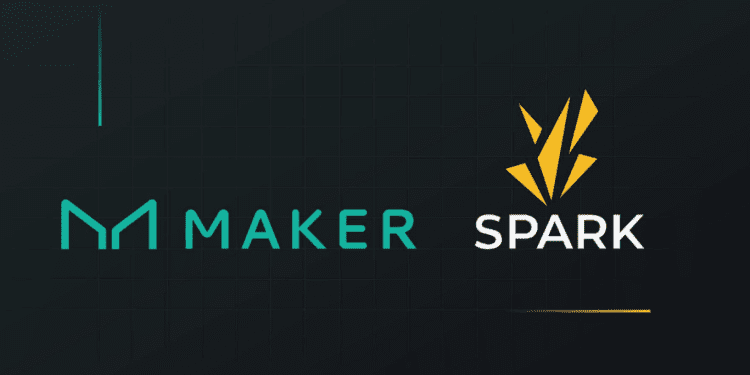- MakerDAO’s recent decision blocks VPN users from Spark Protocol access.
- Chris Blec criticizes the move, stating it impacts global online privacy rights.
- Spark Protocol, backed by Phoenix Labs, offers up to 8% returns for lending DAI.
MakerDAO, known for its contributions to the decentralized finance industry, has recently come under fire for its stance against those using virtual private networks (VPN) to access the Spark Protocol. Many users who tried accessing the site through a VPN received a clear notice stating that such access was denied. The reason behind this decision appears to stem from MakerDAO’s intent to keep U.S. users away from their crypto lending service, as revealed by the updated terms of service for Spark Protocol.
On August 6, Chris Blec, a known DeFi analyst, raised concerns about this decision. He emphasized that this new policy doesn’t only affect U.S. VPN users but has broader implications, affecting VPN users worldwide. To Blec, it appears as if MakerDAO is compromising on global online privacy rights, possibly prioritizing its earnings over foundational values.
Spark Protocol, launched in May, offers enticing returns of up to 8% annually for those who lend out DAI. The platform is an initiative of Phoenix Labs, with the backing of the Maker Foundation. Taking inspiration from Aave v3, the protocol works with TRM’s blockchain intelligence. This partnership allows them to spot and restrict wallets that might be participating in questionable activities.
MakerDAO’s reputation in the decentralized finance space primarily comes from its work on the DAI stablecoin, a cryptocurrency pegged to the U.S. dollar. Their latest project, Spark Protocol, has been set up to cater to DAI users, offering them improved lending rates, sometimes even as low as 1% per year. Central to this service is the D3M mechanism, which makes borrowing DAI straightforward.
Another notable feature of the Spark Protocol is the provision of a new yield possibility with the introduction of savings DAI (sDAI) tokens. These tokens represent DAI stored in Maker’s specialized savings module. Yet, even with such promising features, the platform has seen its fair share of hurdles. The most notable one recently is the resistance it received for preventing VPN users from accessing its services. This move has ignited debates around global privacy rights and whether the drive for profits is overshadowing genuine concerns for user privacy.
Endgame Plan Ushers Potential Evolution for MakerDAO
MakerDAO is making headlines with its visionary “Endgame Plan.” Famed for its DAI stablecoin that mirrors the U.S. dollar, the protocol’s operations on Ethereum enable users to generate DAI via collateral-backed Vaults. Ensuring the stability of this peg are intricate tools like Rate Adjustment and Emergency Shutdown.
However, the spotlight is now on MakerDAO’s commitment to metamorphosis. This transformation is evident in their multi-phase roadmap: from branding innovations and the birth of six independent yet unified SubDAOs, to the advent of AI-driven governance tools. But what truly stands out is the eventual launch of a new blockchain, aimed at safeguarding protocol stability and providing hard fork solutions during grave governance conflicts. The final destination? Reinforcing MakerDAO’s central position in DeFi while championing decentralization and resilience.














